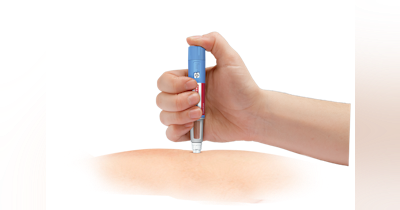Wellness Resources
Family planning and reproductive health are intimately related with nutritional status in men and women. Procreation and human reproduction require whole foods and optimal nutrient status for this energy intensive process to occur. The modern Western diet creates many nutritional shortcomings that profoundly impact fertility and conception. Your health today affects your ability to conceive, have a healthy pregnancy, and influences generations to come.
Several decades ago, pioneers and researchers in nutrition like Weston Price, Francis M. Pottenger, Jr., Adele Davis, Jeffrey Bland, and many others increased our understanding of how nutrition affects health. In the 1940’s, Francis M. Pottenger, Jr., a medical doctor and researcher performed an experiment with cats and their diet known as the Pottenger Cat Study.
In this study, Pottenger fed the control group of cats raw milk, cod liver oil, and raw meat. Other groups of cats and subsequent generations were fed a combination of raw and processed food of the same type. After just three generations of cats fed the combination of raw and processed foods, the health of the felines adversely changed. Disease occurred, reproduction ceased, and young animals died before reaching adulthood.
This type of study has developed over the years and has expanded into the fields of nutrigenetics, nutrigenomics and epigenetics. These fields look at what you eat or don’t eat and how it determines how your genes turn on and off. This is not only related with health or disease for you, but for generations that follow.
Mankind is in an unfortunate experiment to see how processed, high sugar, high calorie foods impacts health of the current and future generations. Processed foods have contributed to a myriad of diseases and health breakdown. We must think about our food choices and how they affect the health of future generations.
Reproductive Health
Reproductive health and conception are related to several things. For women, these include age, being underweight or overweight, athletics, smoking, alcohol, stress, STDs, and hormonal imbalances, etc. Men’s fertility is affected by age, smoking, alcohol, pesticides and other environmental toxins, medications and street drugs, scrotal temperature, and other factors.
Fertility and reproductive health depend on nutrition too. We can learn from the Pottenger Cat Study. Time and research show that inadequate quality nutrition, ovarian aging, and low semen counts occur, which affect human fertility and reproductive concerns. Several recent studies have explored nutrition and reproduction. Here is a brief discussion of some of the latest findings and highlights.
Women - Fertility and Diet
A recent study evaluated diet and nutrient intake in women who were trying to conceive but had difficulty. Women who regularly ate processed foods made with white flour and white sugar had much lower rates of egg fertilization. Whereas women’s reproductive health was improved with whole grain consumption. A whole food diet including carbohydrates was linked with better fertilized egg implantation, successful pregnancy and birth. Whole grains, rich in fiber and B vitamins and minerals, provided more nourishment for the uterine lining, supported healthier blood sugar management, and helped manage estrogen metabolism.
Women who consumed cold-water fatty fish, rich in omega-3 fatty acids EPA and DHA, experienced more successful egg fertilization and conception. Healthier growth and development of the unborn child was also seen compared to those who did not consume omega-3 EPA and DHA. Women who ate predominately fish and poultry with lower intake of red meat and dairy had better formation of early embryonic cells. Dietary intake of trans-fatty acids was associated with anovulatory cycles and fertility problems.
Vitamins A, C, D and E, B vitamins, calcium, magnesium, iron, iodine, zinc and protein, etc. are necessary to maintain a healthy pregnancy. These nutrients are also necessary for fetal growth and development.
Men - Diet and Sperm Health
Men also need healthy diets and nutrients for sperm healthy, fertility, and reproduction. Men who consumed diets rich in fish, organ meat, fruits and vegetables, and whole grains were found to have better semen quality. Men who consumed more trans-fats/partially hydrogenated oils, processed meat, fried foods, refined sugar, sugar-sweetened beverages, soy and phyto-estrogen rich foods, and high-fat dairy products had impaired semen quality.
Diets rich in vitamin A/carotenes (red/orange/yellow vegetables and some fruits), vitamins C, D, E, folate, selenium, and zinc were highly beneficial for sperm number, motility, and vitality. These antioxidants have been found to protect sperm from oxidative damage and support testicular function.
Special Mentions: Vitamin D, Folate, and Zinc
Vitamin D plays many powerful roles in reproductive health. Vitamin D impacts the quality of a woman’s egg and its ability to be fertilized. It is also essential for egg implantation in the uterus. Sperm concentration, motility, and semen quality is impacted by adequate vitamin D. It is also critical growth and development in the unborn child.
Folate
Folate plays numerous critical roles in reproduction and sperm and egg quality. Folate is necessary for DNA and RNA synthesis, metabolism of amino acids, and methylation. These are essential processes for the formation of cells, metabolism, and life, i.e. pairing the sperm and egg together, cell division, and prenatal development and full-term pregnancy. Folate is critical for brain and neural tube development in the preborn.
Women must ensure adequate folate in their diet 2-3 months prior to conception and through pregnancy to ensure healthy spinal cord and neurological development. You may learn more about folate and important concerns in the article “Are You Taking Folate or Folic Acid? Read This First.”
Zinc
Zinc is a trace mineral essential for life. Zinc is involved with over 300 different enzymatic functions. It directly impacts fertility in women and sperm health in men. Zinc is necessary to initiate the “spark” that transpires when the sperm fertilizes the egg and the moment when conception occurs.
Mitochondria
Mitochondrial vitality and health in the sperm and egg are integral to fertility, conception, and the subsequently the health of the child. Mitochondria provide ATP or energy to keep the egg and ovary “young” and for sperm to travel and develop. It is critical to protect mitochondria from the oxidative stress that occurs in reproduction. Coenzyme Q10, resveratrol, PQQ and other nutrients along with a diet rich in fruits and vegetables and supplemental antioxidants provide essential support and protection for mitochondria.
Reproduction, Insulin Resistance, and Meal Timing
A diet predominantly of refined carbohydrates is highly stressful to reproductive organs and promotes chronic inflammation. It ages the ovaries and eggs, testes, and sperm. It also promotes obesity and insulin and leptin resistance that contribute to difficulty with reproduction.
Meal timing also impacts insulin resistance and affects fertility. In 2011, it was proven that meal timing, i.e. frequent meals, grazing, or snacking between meals increases insulin resistance more than meal content. Insulin resistance and obesity promote higher rates of infertility. Allowance of adequate time between meals is essential for insulin and leptin to work and manage food intake. Make sure you follow The Five Rules of The Leptin Diet.
Your own personal health (for men and women) in the preconception phase, which is considered three years prior to conception, affects your reproductive and fertility health. Your body needs proper nourishment during this time. Fertility and reproduction are enormously complicated, energy demanding, and trigger intensive biochemical reactions. It also affects your child’s health from conception and into their adult life. Likewise, the first 1000 days of your child’s life, from conception to age 2, are dramatically influenced by maternal diet and parental choices.
Successful outcomes with fertility and reproduction requires whole foods such as free-range grass-fed animal proteins, wild caught fish, fresh fruits and vegetables, whole grains, legumes, seeds, nuts and both saturated (animal) and unsaturated (fish and plant) fats. The caloric rich/nutrient poor Standard American Diet (SAD) will not help fertility and reproduction.
If you have never read the Pottenger Cat Study, I encourage you to read it. It is a fascinating read and a wake-up call. While humans are not cats and do not follow the same dietary needs, we can learn enormous amounts from this literature and its implications.
“Food for Thought”
A colleague of mine did an experiment that went on for over 5 years. He bought a “Kid’s Meal” with a hamburger and French fries from a popular fast-food restaurant. The meal sat on a plate without refrigeration in an office environment since it was purchased. He did not apply anything to the food to preserve it. The hamburger and bread did not get moldy. The meat did not draw flies or go putrid. It just looked grey, was hard and rubbery. The bun shriveled a bit from time and exposure to air, but it did not rot away. The French fries looked pretty “normal”.
Compare that example to that of an organic grass-fed hamburger and russet potato that you got from your food coop, local farmer, or your own garden. Which food would you want to eat and nourish your body or your child’s health? Or as in the case of the Pottenger Cat Study perspective – how does the food you consume affect your ability to start a family and generations ahead?











